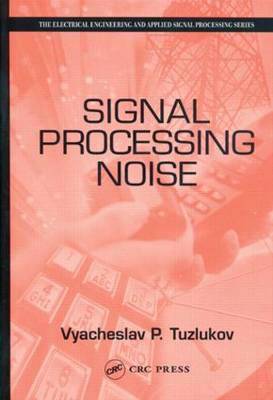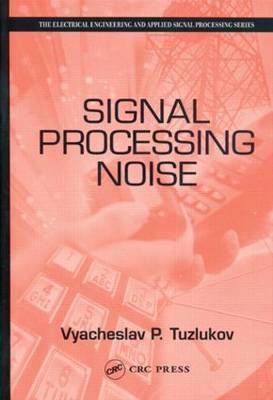
- Retrait gratuit dans votre magasin Club
- 7.000.000 titres dans notre catalogue
- Payer en toute sécurité
- Toujours un magasin près de chez vous
- Retrait gratuit dans votre magasin Club
- 7.000.0000 titres dans notre catalogue
- Payer en toute sécurité
- Toujours un magasin près de chez vous
Description
Additive and multiplicative noise in the information signal can significantly limit the potential of complex signal processing systems, especially when those systems use signals with complex phase structure. During the last few years this problem has been the focus of much research, and its solution could lead to profound improvements in applications of complex signals and coherent signal processing. Signal Processing Noise sets forth a generalized approach to signal processing in multiplicative and additive noise that represents a remarkable advance in signal processing and detection theory. This approach extends the boundaries of the noise immunity set by classical and modern signal processing theories, and systems constructed on this basis achieve better detection performance than that of systems currently in use. Featuring the results of the author's own research, the book is filled with examples and applications, and each chapter contains an analysis of recent observations obtained by computer modelling and experiments. Tables and illustrations clearly show the superiority of the generalized approach over both classical and modern approaches to signal processing noise. Addressing a fundamental problem in complex signal processing systems, this book offers not only theoretical development, but practical recommendations for raising noise immunity in a wide range of applications.
Spécifications
Parties prenantes
- Auteur(s) :
- Editeur:
Contenu
- Nombre de pages :
- 684
- Langue:
- Anglais
- Collection :
- Tome:
- n° 8
Caractéristiques
- EAN:
- 9780849310256
- Date de parution :
- 29-04-02
- Format:
- Livre relié
- Format numérique:
- Genaaid
- Dimensions :
- 166 mm x 244 mm
- Poids :
- 1079 g

Les avis
Nous publions uniquement les avis qui respectent les conditions requises. Consultez nos conditions pour les avis.






